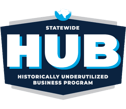Healthcare risk management is an all-encompassing concern. As we’ve mentioned before, as a risk manager, you are tasked with protecting patients, healthcare workers, and the facility or system from the many potential risks healthcare organizations face.
When it comes to hazardous drugs, it's not just the pharmacy that the harmful effects of exposure to hazardous drugs could impact. In fact, the pharmacy is one department that has years of experience in protecting themselves from hazardous drug exposure through compounding. While USP <800> now dictates many ways healthcare workers must be protected, the pharmacy is already very familiar with and has put many of these guidelines into practice.
Nurses are also somewhat new to the extent to which they must protect themselves, but over recent years, they have become more aware and more engaged with the safety measures they must take to prevent exposure to hazardous drugs.
Who within your organization may be less experienced in the requirements of USP <800>? The environmental services team. How are safety guidelines communicated to this often analog group in a digital world?
Many hospitals and healthcare systems still use traditional methods to share safety protocols with the environmental services team who encounter hazardous drug waste through disposal and cleanup. These may not suffice when it comes to inspections.
Hospitals that have been fined for hazardous waste infractions have been cited for a variety of issues, including:
- Failure to provide hazardous waste training for personnel
- Failure to properly dispose of hazardous waste
- Failure to make hazardous waste determinations
- Failure to keep records of hazardous waste determinations
- Failure to prepare hazardous waste manifests
- Failure to maintain records of hazardous waste manifests
- Failure to properly mark hazardous waste containers for transportation as required by US DOT
- Failure to report hazardous waste and waste minimization efforts on annual reports
- Failure to have a contingency plan for hazardous waste
Over the years, fines for hazardous waste violations have increased both in financial penalties and also due to the number of agencies that now include these violations in their inspections.
In fact, the Resource Conservation and Recovery Act (RCRA) can fine up to $50,000 a day for violation in treatment, storage, or disposal in violation of a permit and anywhere from $250K to $1M for knowing endangerment, based on Section 3008 of RCRA, 42 U.S.C. § 6928.
According to the EPA website, “knowing endangerment applies when a person knowingly transports, treats, stores, disposes of, or exports a hazardous waste in violation of 42 U.S.C. 6928(d)(1) - (7) and knew that such acts put another person in imminent danger of death or serious bodily injury.”
Penalties may double for subsequent violations of the RCRA, the site goes on to explain.
The USP <800> guidelines provide a framework for protecting healthcare workers, including environmental services. By following USP <800> guidelines, healthcare organizations will also be on their way to meet compliance requirements for other regulations like the RCRA and other laws enacted by the EPA and OSHA, etc.
Rpharmy’s Rhazdrugs hazardous drug safety platform is cloud-based, making it simple to keep everyone in your organization up to date on hazardous drug handling and disposal information. The bottom line is now every healthcare worker who encounters hazardous drugs in some form can access the information they need to protect themselves when and where they need it.
“Rhazdrugs has helped us make drug safety information, including NIOSH guidelines, available to those outside the pharmacy, like nursing and environmental services. Previously, it was too much information for the pharmacy to try to pull together and keep updated,” said Berkeley Sykes, Pharmacy Operations Manager at Huntsville Hospital.
When we think of exposure to the environmental services worker, we may believe primarily of spill clean up and waste disposal, but they are also potentially exposed through the changing of linens and other duties. Because environmental services may not access a computer for many of their duties, a mobile device with access to the safety protocol specific to their job is necessary.
Rhazdrugs also helped Huntsville Hospital to understand how to communicate and educate their environmental services teams on safety protocols to protect themselves.
“The ability to provide environmental services with a document that fully explains what protocols need to be followed and why has impacted the safety of our healthcare workers,” said Sykes.
As you evaluate your risk management program in light of USP <800> hazardous drugs safe handling and disposal guidelines, we are here to help. The Safety First Blog is home to many resources about USP <800> including understanding “should” and “must”, how mobile devices can improve healthcare safety, choosing a hazardous drug safety solution and many more. Also, a free 8-part webinar series on USP <800> compliance is available on demand.
Also, we’ll be at ASHRM23 in October, supporting your efforts to identify and reduce risk within the healthcare industry. Make plans to visit our “Bite Size Theatre” session on Monday, October 2nd, at 8:40 a.m., where we’ll share how our cloud-based medication safety solutions can improve safety within your organization and significantly reduce risks associated with the compounding and administering of hazardous drugs. Stop by the Rpharmy booth #820 to learn more about Rhazdrugs and our medication resource platform, Formweb.


